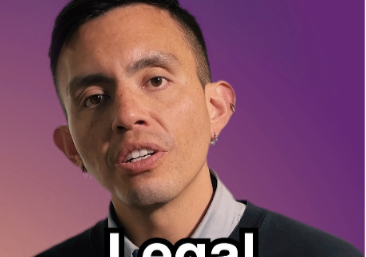What do I do if ICE shows up at my home?

Watch video in Spanish here.
Do not open the door
Remember that ICE does NOT have the right to come into your home unless YOU or a judge authorizes it. You do not have to open the door or let officers in unless they have a valid warrant signed by a judge.You should say clearly “I do NOT consent to you entering my house” or “I do NOT want you to come into my house.” Avoid making any gestures that might look like you are welcoming someone into your home (waving someone in or nodding towards the inside of your home). Saying this may not always stop them, but it may help any future legal case.
Remain silent
You do not have to speak to an immigration officer or answer questions. Tell them you do NOT want to speak with them, even if they identify themselves as ICE or “the police.” If you are asked “where you are born” or “how you entered the US,” you do not have to answer their questions. Simply say “I choose to remain silent.”
Ask to see a judicial warrant
If ICE says that you “have to” open the door or talk to them, ask them if they have a “judicial warrant” signed by a federal judge. If they say they do, ask them to slide it down underneath the door. REMEMBER – only a JUDICIAL WARRANT allows ICE to come into your home. Roughly 95% percent of the time ICE has an “administrative warrant” created by ICE itself which does NOT give them the right to enter your home.
Do not open the door to receive any document from ICE
If ICE wants to show you or hand you a document, ask them to slide the document underneath your door. Do not open the door to receive any documents. If you do, a judge later might interpret this as you having extended an invitation to ICE to come into your home.
Inspect the documents that ICE hands you
If ICE hands you a document that they allege to be a judicial warrant, make sure that you inspect the document carefully. Most “warrants” that ICE uses are titled “administrative warrant” or “warrant.” Those warrants are NOT valid and they do not give permission to ICE to come into your home. If the document they hand you is not signed by a federal judge, then it is NOT a judicial warrant and thus does not give permission to ICE to come into your home. Note that if ICE had a judicial warrant signed by a federal judge, they would not need your consent to come in.
If ICE enters your home without permission
If ICE knocks down the door or forces themselves in to arrest you – do not resist. Simply let them know that you would like to speak to an attorney and then stop answering questions. Try and take note of as many details about the incident as possible, the names of the officers, what they look like, the date and time of entry and any other relevant details. This could be important later in your immigration case.
If you are detained
Remember, you have the right to remain silent even if you are detained. You also have the right to speak to an attorney. You do not need to sign any documents or answer any questions before you speak with a lawyer.
You should tell ICE if you have medical issues or need to arrange for childcare. ICE agents may not speak your preferred language. You have the right to request an interpreter for any conversation with ICE or any appointment or hearing you are given. You can say, “I need an interpreter.” You have the right to an attorney.
Once detained, you will have the right to make limited phone calls to your family, friends, community leaders, or attorney.
To find free legal assistance
If you or a family member need free legal assistance with an immigration matter, dial 311 and say “ActionNYC” or call the Mayor’s Office of Immigrant Affairs (MOIA) Immigration Legal Support Hotline directly at 800-354-0365, which operates Monday to Friday, 9:00am to 6:00pm. If you need additional information, please visit MOIA’s webpage.
Resources:
Know Your Rights: If ICE Visits Your Home (AILA)
Know Your Rights with ICE (NYC.gov)
What to Know if ICE Comes to Your Home (Immigrant Defense Project)
What to Do If You Are Arrested or Detained By Immigration (National Immigration Law Center)
What to Know About ICE Encounters (The Legal Aid Society)
For free legal help, call Legal Services NYC at 917-661-4500 Monday through Friday from 9:30 a.m. to 4 p.m. Learn more about our intake process here.
* The information does not constitute legal advice. You should always consult an attorney regarding your matter. Legal help subject to capacity and location.
Join us. Demand Justice.
In this extraordinarily challenging moment, your partnership with LSNYC is critical. Please join us by making your gift today.